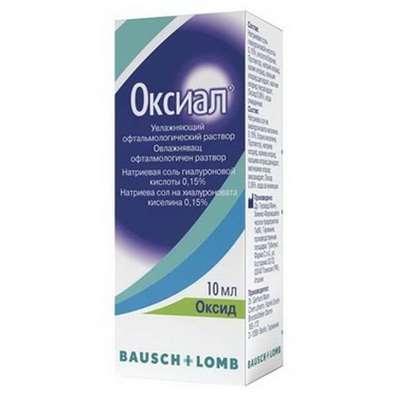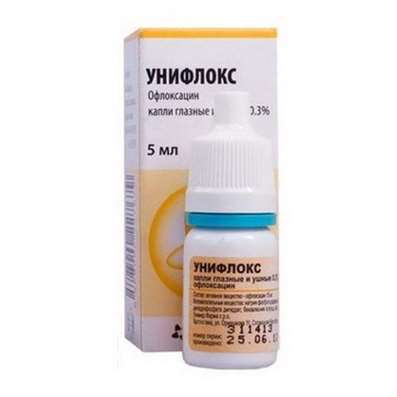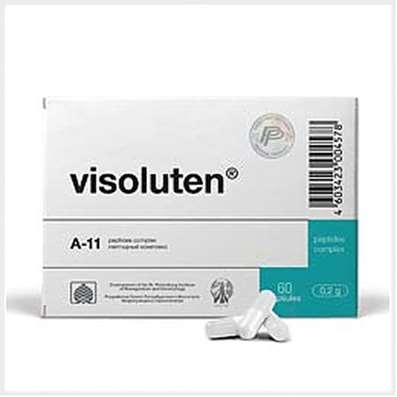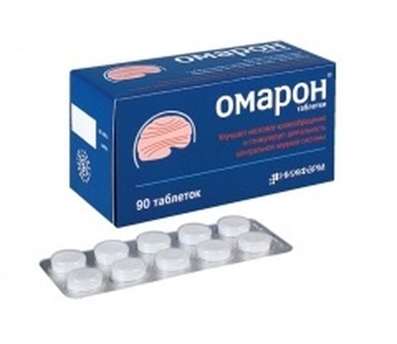Derinat (Sodium deoxyribonucleate) - Instructions for Use, Dosage, Side Effects, Reviews
20 Jan 2017
Pharmacological group - Other immunomodulators.
Synonyms: Panagen, Dezoxynat.
Active substance: Sodium deoxyribonucleate (extract from sturgeon roe).
ATC - B03XA Preparations for the treatment of anemia and other.
Pharmacological group - Immunomodulatory agent, a stimulant of hematopoiesis, regenerant, reparant [Other immunomodulators].
The first barrier to infections transmitted by airborne droplets, becomes mucous nasopharynx. If it's even a little damaged, local immunity is reduced. The causative agents of the common cold and flu can easily penetrate into the body and begin to actively proliferate, destroying the already weakened mucous. In the treatment and prevention of SARS is important to pay attention to strengthening the nasopharyngeal mucosa. Durable protective barrier viruses and bacteria can not overcome. Strong local immunity prevents acute inflammation and the development of complications.
Derinat - a unique product, designed specifically for the treatment and prevention of influenza and acute respiratory viral infections in children and adults. He works in several directions:
It restores the damaged mucosa and increases its ability to resist the negative impact of infectious agents;
It activates the body's defenses and helps the immune system fight off viruses, bacteria and fungi;
prevent complications and speed recovery.
The tool is available in the form of: - spray; nasal drops; ampoules
Spray droplets and Derinat composition contain the same active substance. The difference between them - only in the form of release and the order of application.
The pediatrician may prescribe Derinat as monotherapy colds or as an additional tool. And spray droplets are compatible with antibiotics, anti-inflammatory and antipyretic drugs. Drops and Spray protects against complications and accelerate recovery. They help the body to fight the infection faster, will reduce the period of taking antibiotics and anti-inflammatories.
Drops - for kids and not only
Derinat droplets can be used for the treatment and prevention of colds in children with 1 day of life in adults. The drug has no contraindications but are hypersensitive.
The recommended procedure for the use of nasal drops Derinat in the treatment of SARS and influenza:
the first 2 days - under 2 drops into each nostril every 2 hours
to 3 days until complete recovery - 2 drops every 3-4 hours.
The pediatrician and therapist may change the dosage indications and procedure for use of the drug.
Drops Derinat will also be effective in the prevention of colds and flu in children and adults. To protect against disease, every 3-4 hours is instilled 2 drops.
The drug is available in compact bottles with a dropper. They are easy to carry: they fit in a jacket pocket and purse. Use drops is simple and convenient, even if you are not at home.
Spray - reliable protection from the cold for the whole family
Spray Derinat - an effective tool for the treatment and prevention of colds in adults and older children. Convenient dispenser allows uniformly irrigate nasal mucosa, which provides maximum protection against further infection. Small bottle with spray is easy to take on the road, at school or work.
In the first days of treatment for colds and flu spray is recommended to spray every two hours. To prevent mucous can irrigate every 3-4 hours. Before the start of the drug consult your doctor. He will offer the most effective scheme therapy.
Drops and Spray Derinat - drugs that should always be in the family medicine cabinet. Effective medication reliably protects against infection of all family members - from baby to grandma. In the season of colds Derinat use for prophylaxis to illness avoided your house party. Be healthy!
ATC code: LO3, VO3AX.
Nosological classification (ICD10)
A16 Respiratory tuberculosis, not confirmed bacteriologically or histologically;
A41.8 Other specified septicemia;
A49 Bacterial infection of unspecified site;
A49.3 The infection is caused by mycoplasma, unspecified;
A49.8 Other bacterial infections of unspecified site;
A56 Other chlamydial disease, sexually transmitted infections;
A63.8 Other specified diseases transmitted mainly through sexual contact;
A64 diseases, sexually transmitted infections, unspecified;
B34.9 Viral infection, unspecified;
B99 Other infectious diseases;
B99.9 Other and unspecified infectious diseases;
D26 Other benign neoplasms of uterus;
D64.9 Anaemia, unspecified;
D84.8 Other specified immunodeficiencies violation;
I25.9 Chronic ischemic heart disease, unspecified;
I70.2 Atherosclerosis of arteries;
I73 Other peripheral vascular disease;
I73.9 peripheral vascular disease, unspecified;
I87.2 Venous insufficiency (chronic) (peripheral);
J06 Acute upper respiratory infections of multiple and unspecified;
J22 Acute respiratory infection lower respiratory tract, unspecified;
J30 Vasomotor and allergic rhinitis;
J30.1 Allergic rhinitis caused by pollen;
J44 Other chronic obstructive pulmonary disease;
J44.9 Chronic obstructive pulmonary disease, unspecified;
J45 Asthma;
K12 Stomatitis and related lesions;
K25 Gastric ulcer;
K26 Duodenal Ulcer;
K29.9 gastro unspecified;
L20 Atopic dermatitis;
L98.4.2 * trophic ulcer of the skin;
M06.9 Rheumatoid arthritis, unspecified;
N39.0 Urinary tract infection without the current locale;
N40 prostatic hyperplasia;
N41 Inflammatory diseases of prostate;
N70 Salpingitis and oophoritis;
N71 Inflammatory disease of uterus, except cervix;
N74.4 Inflammatory diseases of female pelvic organs caused by chlamydia (A56.1 +);
N80 Endometriosis;
R68.8.0 * inflammatory syndrome;
T14.1 Open wound of unspecified body region;
T30 Burns and corrosions of unspecified site;
T66 Unspecified effects of radiation;
T78.4 Allergy, unspecified;
T79.3 Post-traumatic wound infection, not elsewhere classified;
Y84.2 Abnormal reaction or a late complication in a patient with no mention of random causing him harm during radiological procedures and radiotherapy;
Z100 * CLASS XXII Surgical Practice;
Z51.0 radiotherapy;
Z51.1 chemotherapy for tumors;
Z58.4 Exposure to radiation contamination;
Z98.8 Other specified after surgery state.
Pharmacological action
Immunomodulator that affects cellular and humoral immunity. Immunomodulatory effect Derinat due to stimulation of B-lymphocytes, activation of T-helper cells. Derinat activates nonspecific resistance of the organism, optimizing the inflammatory response and the immune response to bacterial, viral and fungal antigens. Derinat stimulates reparative and regenerative processes.
Increases the bodys resistance to infections. Regulates hematopoiesis (normalizing the number of white blood cells, lymphocytes, granulocytes, phagocytes, platelets). Having expressed lymphotropic, Derinat stimulates drainage and detoxification function of the lymphatic system. Derinat significantly reduces the sensitivity of cells to the damaging effects of chemotherapeutic drugs and radiotherapy.
Pharmacokinetics
Absorption and distribution
Rapidly absorbed from the injection site when the i/m and lymphatic spread to organs and tissues. Deoxyribonucleat sodium has a high affinity for bodies of blood, has been actively involved in cellular metabolism, embedding into cell structures. Maximally accumulated in the bone marrow, lymph nodes, thymus, spleen, and to a lesser extent - in the liver, brain, stomach, small intestine and colon.
In the intensive phase proceeds of the drug into the blood redistribution between plasma and formed elements of the blood, in parallel with the metabolism and excretion. After a single injection for all pharmacokinetic curves describing the change in the concentration of the drug in the studied organs and tissues, characterized by rapid phase of increasing and reducing the concentration of the fast phase in the range of 524 hours. After the i/m of Cmax is reached after 5 hours. The drug crosses the blood-brain barrier. Cmax of the drug in the brain is achieved after 30 minutes.
Metabolism and excretion
Deoxyribonucleat sodium is metabolized in the body. Write mainly kidneys and partly in the feces. T 1/2 when i/m administration is 72.3 hours.
Derinat Dosage
Derinat designate an adult i/m (during 12 min) in an average single dose of 75 mg (5 ml of solution for i/m administration of 15 mg/ml) at intervals of 2472 hours of administration.
When a CAD the drug is administered i/m 5 ml of 15 mg/ml at intervals 4872 hours, the course of treatment - 10 injections.
In gastric ulcer and duodenal ulcer appoint i/m 5 ml of 15 mg/ml after 48 h treatment - 5 injections.
For cancer - i/m 5 mL (75 mg/day) in 2472 hours, the course of treatment - 10 injections.
In gynecology (endometritis, chlamydia, ureaplasmosis, mycoplasmosis, oophoritis, fibroids, endometriosis) - i/m 5 ml of 15 mg/ml 2448 hours, the course of treatment - 10 injections.
In Andrology (prostatitis, benign prostatic hyperplasia) - i/m 5 ml of 15 mg/ml 2448 hours, the course of treatment - 10 injections.
In tuberculosis - i/m 5 ml of 15 mg/ml 2448 hours treatment - 1015 injections.
In acute inflammatory diseases - i/m 5 ml of 15 mg/ml after 2472 hours, the course of treatment - 35 injections.
In chronic inflammatory diseases - i/m a solution of 15 ml of 5 mg/ml: 5 injections with the first interval of 24 hours each, the next - each with an interval of 72 hours, the total course of treatment - 10 injections.
When using a solution of 15 mg/ml in 2 ml i/m daily injections are doing recalculation course dose to achieve 375750 mg.
In children, the multiplicity of i/m administration is the same as in adults. Children under 2 years of drug administered in an average single dose of 7.5 mg (0.5 ml solution for i/m administration of 15 mg/ml) for children between the ages of 2 10 years single dose is determined by the rate of 0.5 ml per year of life, children over the age of 10 years, the average single dose of 75 mg (5 ml solution for i/m administration of 15 mg/ml), course dose - up to 5 injections.
Overdose
Overdose symptoms were not observed.
Drug Interactions
Derinat application in complex therapy improves the efficiency and shorten the duration of therapy, with a substantial reduction doses of antibiotics and antiviral agents with increasing periods of remission.
Derinat improves antitumor antibiotics anthracyclines, cytostatics.
Pregnancy and lactation
The patient should be advised that before using the drug during pregnancy and lactation should consult a doctor. The appointment of the drug during pregnancy should assess the expected benefit to the mother and the potential risk to the fetus.
Side effects
Possible: in patients with diabetes is marked hypoglycemic effect, which should be taken into account by controlling the level of glucose in the blood.
Indications
Radiation damage;
Violation of hematopoiesis;
Mielodeprescia and resistance to cytostatic drugs in cancer patients that developed on the background of cytostatic and/or radiation therapy (stabilization of hematopoiesis, reducing cardio- and myelotoxicity of chemotherapeutic agents);
Stomatitis induced by cytostatic therapy;
Gastric ulcer and duodenal ulcer, erosive gastro;
Coronary artery disease;
Obliterating vascular disease of the lower extremities stage II-III;
trophic ulcers, nonhealing wounds;
Odontogenic sepsis, septic-purulent complications;
Rheumatoid arthritis;
Burn disease;
Preoperative and postoperative periods (in surgery);
Chlamydia, ureaplasmosis, mycoplasmosis;
Endometritis, salpingo, endometriosis, fibroids;
Prostatitis, benign prostatic hyperplasia;
Chronic obstructive pulmonary disease;
Pulmonary tuberculosis, inflammatory disease of the airways.
Contraindications
Hypersensitivity to the drug.
Cautions
The drug has no embryotoxic, teratogenic and carcinogenic effects.
Perhaps s/c injection of the drug.
The drug potentiates the therapeutic effect of basic therapy in gastric ulcer and duodenal ulcer.
Derinat reduce iatrogenic basic drugs in the treatment of rheumatoid arthritis with the achievement of 50% and 70% improvement on a number of complex indicators of disease activity.
In surgical sepsis Derinat introduction of the combined therapy causes a decrease in the level of intoxication, activation of the immune system, normalization of blood, improves the functioning of the bodies responsible for detoxification processes of the internal environment of the body (including the lymph nodes, spleen).
According to recent clinical studies proved the effectiveness Derinat in patients with acute exacerbation of COPD of varying severity with standard therapy. Assign i/m 5 ml of 15 mg/ml 2448 hours treatment - 510 injections.
Application at childhood
In children, the multiplicity of i/m administration is the same as in adults. Children under 2 years of drug administered in an average single dose of 7.5 mg (0.5 ml solution for i/m administration of 15 mg/ml) in children between the ages of 2 to 10 years, the single dose is determined by calculating 0.5 ml per year of life. Children over the age of 10 years, the average single dose of 75 mg (5 ml solution for i/m administration of 15 mg/ml), course dose - up to 5 injections.
Derinat Reviews
Derinat is very good medication. Help in last year's flu epidemic! When sick all colleagues and gender group in kindergarten, derinat works perfectly!
Derinat - a powerful immunomodulator and not just 12 one-disease medication!
These drug Derinat saved me during pregnancy and during breastfeeding and continue to subside now!

 Cart
Cart





